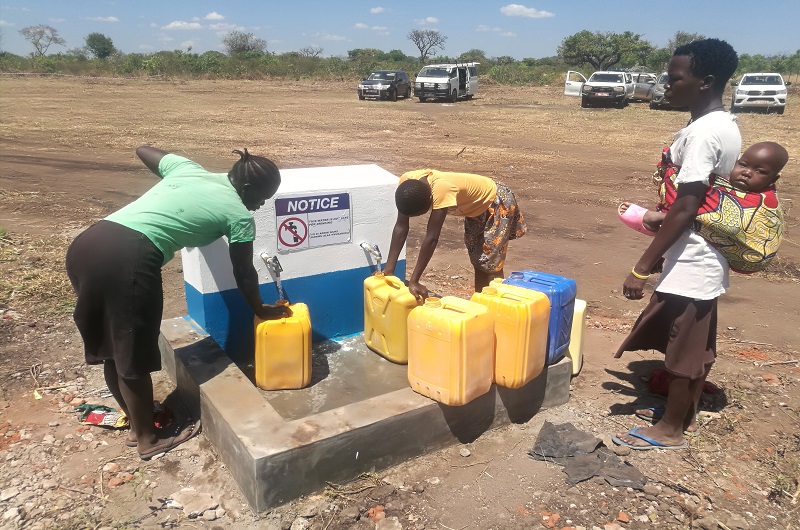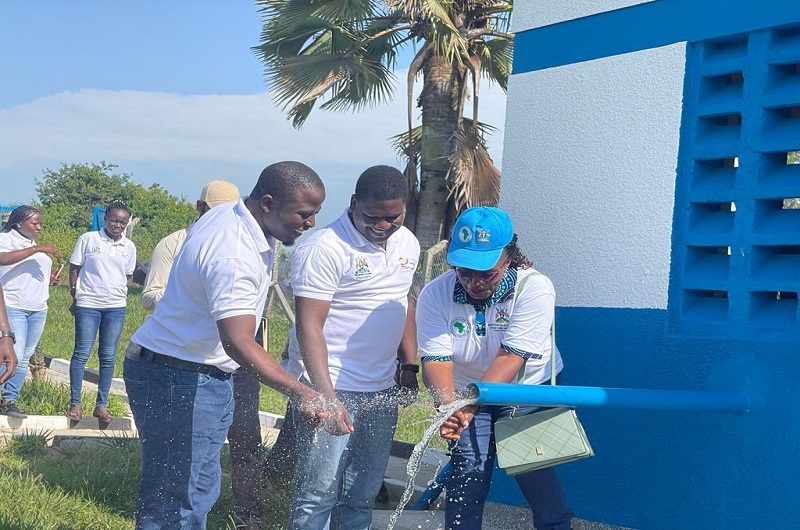
Innovate home grown solutions for water-secure continent – Uganda’s NWSC boss rallies international Water and Sanitation stakeholders
- FEATUREDNEWS
- December 10, 2023
- No Comment
By Correspondent
KIGALI: Dr. Eng. Silver Mugisha, the managing director of National Water and Sewerage Corporation (NWSC), who is also the President of the African Water and Sanitation Association (AfWSA) has urged water supply and sanitation sector players in Africa to innovate homegrown solutions for a water-secure continent.
Eng. Dr. Mugisha, made these remarks while delivering a keynote address at the opening of the International Water Association (IWA) Water and Development Congress & Exhibition (WDCE) 2023 happening at Kigali Convention Centre in Rwanda. He said the continent needs to reverse the trend of being net importers of technology solutions to creators of solutions. “Can African water supply and sanitation actors develop a mindset that what man can innovate anywhere on earth, they can also innovate it themselves? Can’t they reverse the trend of being net importers of technology solutions to creators of solutions,” Dr. Mugisha said during a ceremony opened by Rwandan Minister of Infrastructure Dr. Jimmy Gasore

He said that despite billions of dollars of investment to solve Africa’s ongoing water crisis, there’s still much to be done, a development he emphasized can only be solved by locally developed solutions.
Dr. Mugisha who is praised for transforming Uganda’s National Water and Sewerage Corporation (NWSC) into a leading water utility organization in Africa said there is no one-size-fits-all solution, which may explain why, according to the United Nations, half of all donor-led schemes to provide safe drinking water fail in the first two to five years. The NWSC Managing Director also discussed the need to look at operating efficiency reforms and structured cost containment measures as the most feasible way to get the continent out of the black hole.
“Can we have a paradigm shift from adopting solutions because others have them to adapting solutions because we need and can afford them,” he suggested to over 3000 participants attending the weeklong conference.

Out of the 2 billion people and 3.5 billion people who lack access to safe sources of water and sanitation, respectively, he said the biggest access problem of water supply and sanitation services is in Africa. He suggested that bolder actions are needed to scale up what works well and address systemic obstacles to water security and sanitation.
Sharing best practices and next utility management principles at NWSC, he urged that solving a problem on such a scale requires new ways of thinking – solutions that can work locally, yet still be scalable. He explained that, under his leadership, AfWASA is working with its members to address several questions including pushing for innovative and sustainable sources of financing for critical infrastructure inputs, including the use of internally generated revenues.
He urged African utility leaders to move away from a build, neglect and replace approach, to one where all developed infrastructure is effectively and sustainably managed.
Under the themed _‘Water, sanitation, and climate resilience – keys to a water-wise future’_, the IWA’s Water and Development Congress & Exhibition is scheduled for Sunday, December 10, to Thursday, December 14. This 2023 edition will present solutions spanning water and sanitation services, the role of water in urban areas, the links between cities and basins, and the opportunities to achieve climate resilience.
Participants will share knowledge on innovations in science and practice, highlighting the opportunities for securing new and effective solutions in water and sanitation policy, technology, and management.
Over 3000 participants and over 100 exhibitors from over 100 countries are in attendance, providing a unique platform for water professionals to present and share their recent findings and insights.
The UN’s Global Water Security 2023 Assessment found that all countries in the continent are facing water insecurity, with 13 of them assessed as being ‘critically’ water insecure. Africa is a region of fast urbanization and it has strong academic institutions, but it has the lowest levels of safe water, sanitation, and hygiene services worldwide.
Almost 31% of people in Africa do not have access to basic drinking water services, and only 15% have access to safely managed drinking water. In the case of sanitation, 82% of people still live without access to a safely managed sanitation service.
These low levels of dealing with wastewater are linked to high mortality rates, with the World Health Organization raising the alarm in 2019 that 20 countries in Africa had ‘extremely high mortality rates’.





